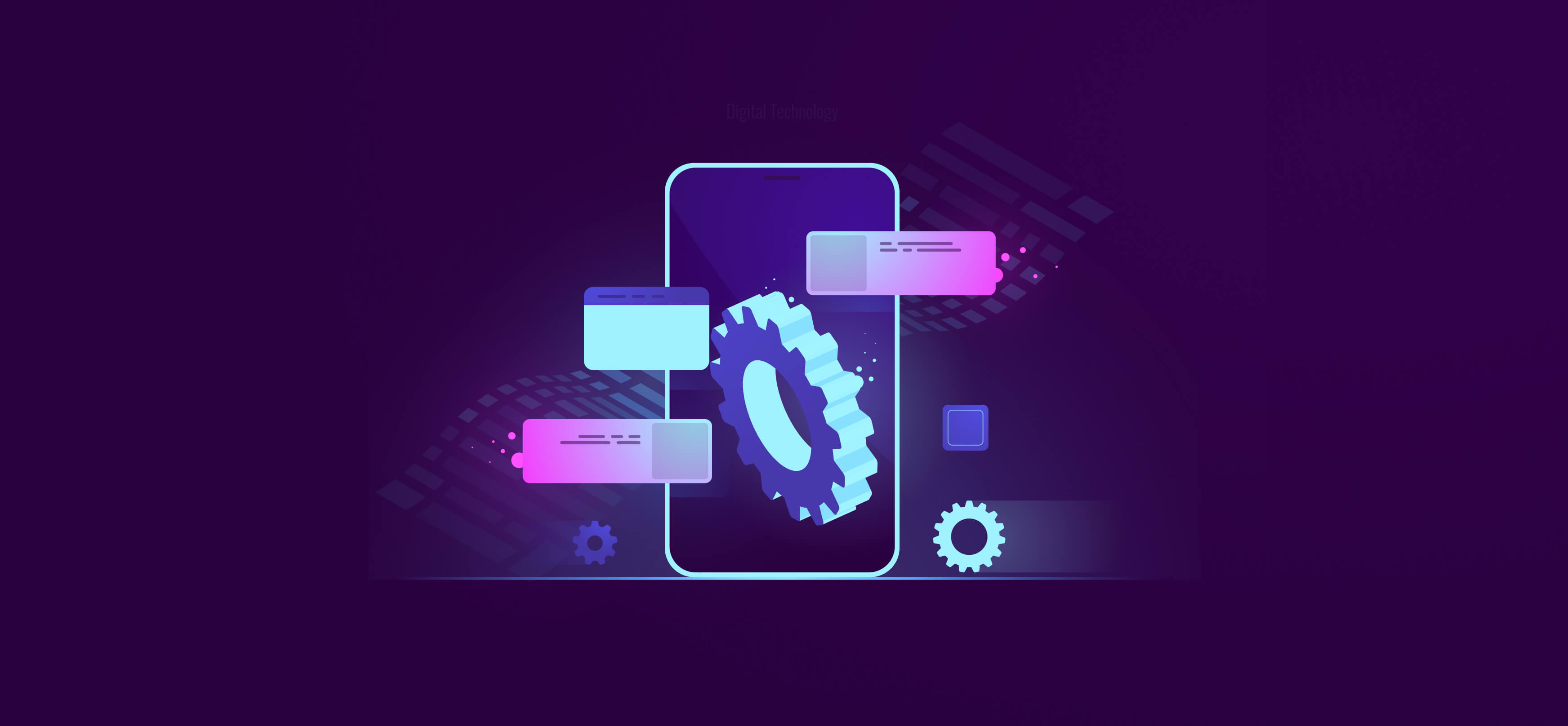
So, do you want to make a mobile application but do not know where to start? At the beginning of the design process, you are faced with a decision that will affect your app's entire development and deployment: choosing an app development framework. Rather than going in-depth about each framework, this article explains what an app development framework is. If you are interested in learning about the best framework for app development in 2025, follow this link.
An app development framework is a software library that gives users the tools to create a mobile application. Often, it provides low or no-code options for individuals who want to develop an app but are not software engineers or intense coders.
If you are interested in creating your own mobile application or delving into the app development world, this article is an easy first step to learning more. This article introduces you to what an app development framework is, explains why we use them and tells you what you should consider when choosing a framework.
Again, an application development framework is a software library that provides tools for mobile app developers. The framework offers an all-in-one bundle of features that makes it much easier to make an app. All frameworks supply a core of generic libraries that simplify your coding experience. Without a framework, you would have to cobble together the tools, sorting out any compatibility issues along the way. If you do not use a framework, you may also deal with issues like databases that are not designed for mobile apps and complex architectures that are incompatible. Even after going through all this, you may produce an overall low-quality mobile app.
Using a framework is much friendlier to those just getting started in mobile development. Trying to create your own software libraries and toolsets for mobile development is like trying to reinvent the wheel. Why not use your efforts in a more impactful way and get the job done faster? In short, it is much easier to use a framework that is already on the market than to create a custom one.
Frameworks have several distinct advantages apart from being an easy way to gather the necessary development tools. The most significant advantage is that using a framework reduces the number of errors you can make since they already have much of the base code assembled for you. Thus, you spend less time working through bugs and more time actually designing your mobile app.
Next, using a pre-developed framework results in more secure code. Cybersecurity has become a hot topic, with ransomware attacks and data leaks in daily headlines. Using a framework lends you the coding expertise of all the engineers who worked on that project. Therefore, it is less likely to have glaring security vulnerabilities than your home-brewed code would.
Additionally, using a framework significantly speeds up the development process. As alluded to earlier, reinventing the software library wheel is just unnecessary. Using a framework gets you started on your project faster and speeds up the development process. The plugins, application programming interfaces (APIs), modules, and bundles included in a framework are like cheat codes for faster app deployment. Instead of having to rewrite the same fifty lines of code every time you want to perform a particular function, frameworks have a pre-developed unit to accomplish that task for you.
Another advantage to frameworks is that they have an active community of users who answer each other's questions on forums so you can get help if you are stuck on a problem! This is especially helpful for new app developers. You can get answers from experienced professionals and software nerds. This helps you quickly solve problems that might otherwise leave you troubleshooting for hours or days.
While there is no one best framework available, some frameworks will fit your needs better than others. Therefore, several factors must be considered before you invest time in learning a new framework. First, consider your platform. Some frameworks only work on a single platform, such as SwiftUI, which is limited to only Apple products. Others offer development for a wide range of platforms, including Apple, Android, and web applications.
Additionally, you should consider your past coding and development experience. Some frameworks are aimed at developers with little to no coding experience. These are called low-code or no-code frameworks. Instead of staring into the abyss of back-end code and complicated libraries, you can use low- or no-code frameworks to deploy customizable modules from a suite of commonly used functions. Often, you can even customize the appearance of the modules to match your company's branding.
Lastly, consider how much community support you want your framework of choice to have. For example, if you foresee yourself extensively using a community forum to get answers, you will likely want to choose a popular, open-source framework like Flutter or React Native. However, if you do not need to rely on an active community around your framework, you could choose a proprietary framework like SwiftUI. The advantage of a less active community and a proprietary codebase is that the less frequent updates mean you have to tweak your application less often after it is released. If you are feeling even more independent, you could try some older or more obscure frameworks.
Now that you know what an app development framework is, why using one is advantageous, and what factors to consider when choosing one, you are ready to begin your mobile development journey. No matter which framework you choose, taking the time to learn about and select one will save you much more time and headaches during development.